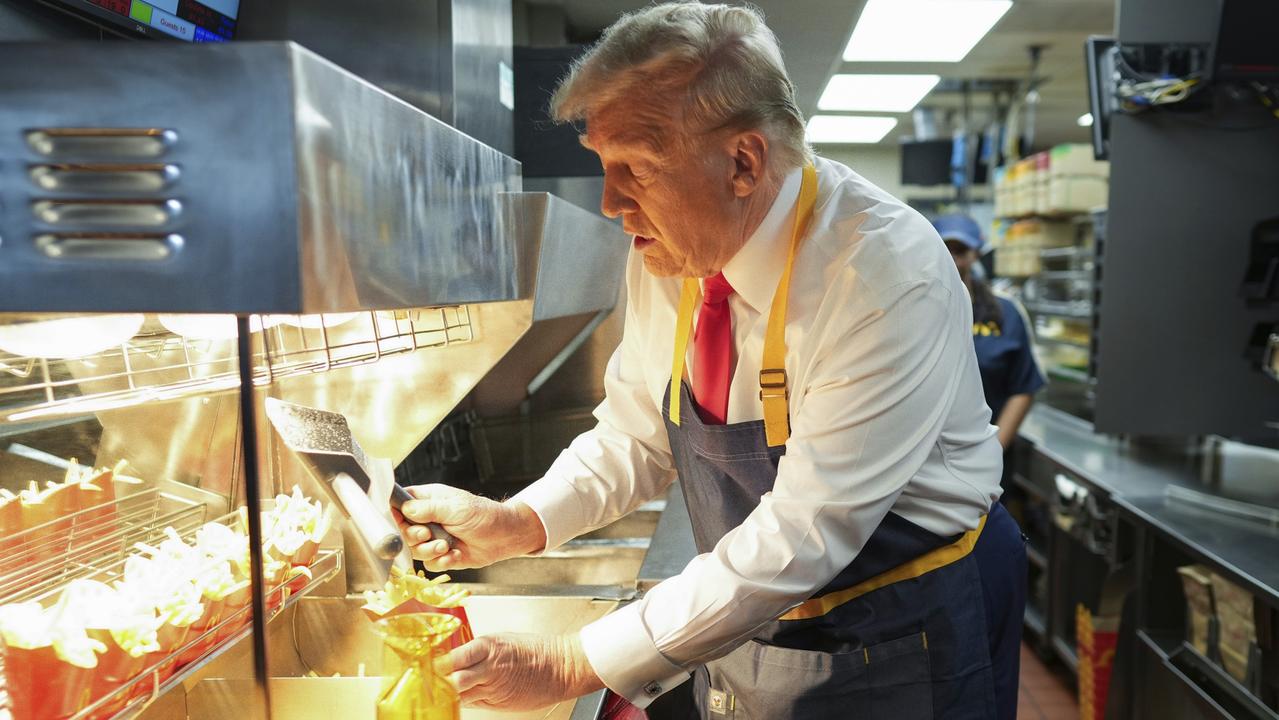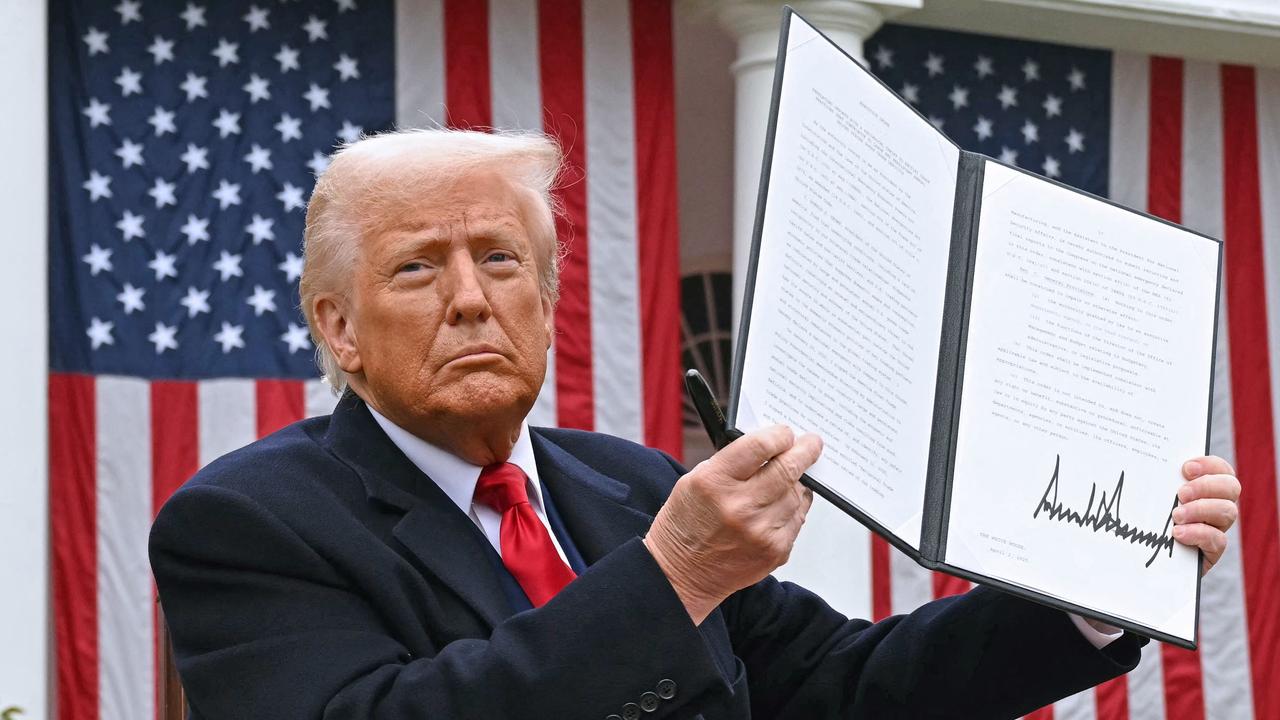ASX 200 hammered during Friday’s trading
The fallout from US President Donald Trump’s tariff policy continued to send shockwaves through the market, wiping out more than $50bn on the local market.
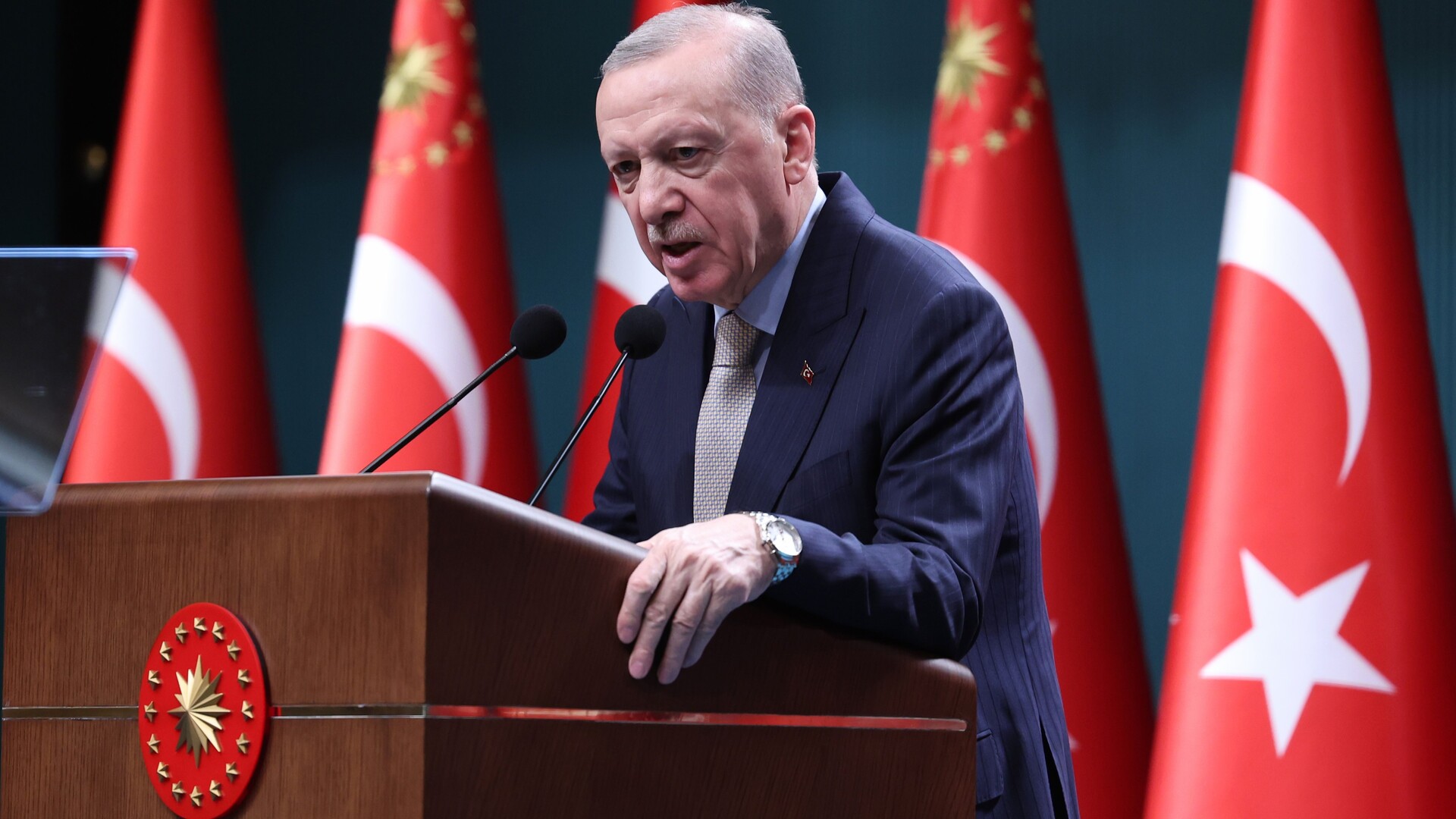
Business Breaking News
Don't miss out on the headlines from Business Breaking News. Followed categories will be added to My News.
The Australian sharemarket tumbled on Friday to its worst day in eight months as investors continued to sell on the increasing risk of a global recession.
Investors sold off more than $50bn on the local market on Friday alone, as the benchmark ASX 200 index closed sharply lower Friday, dropping 191.90 points or 2.44 per cent to 7,667.80 and setting a new 100-day low.
The broader All Ordinaries also took a dive on Friday, dropping 205.10 points or 2.55 per cent to 7,847.60.
The Australian dollar fell and is now buying 62.44 US cents.
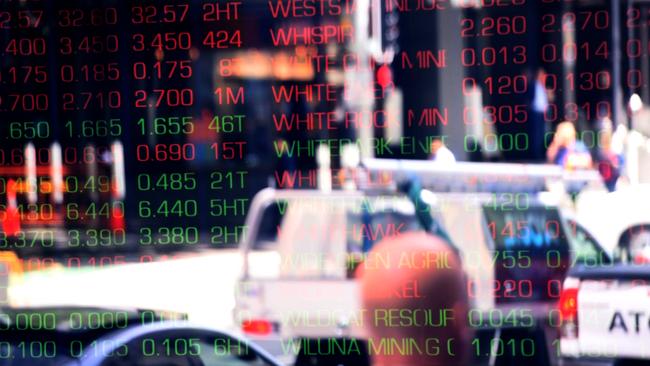
Following Friday’s falls, the ASX200 is now officially in a correction, down more than 10 per cent from its mid February highs.
Australia’s market was not alone in the falls, with Asian markets having their worst week since March 2020. Japan’s Nikkei 225 fell 3.04 per cent during Friday’s trading, while South Korea’s Kospi slipped 1.78 per cent. Both the Hong Kong and China markets are closed for the Qingming Festival.
Wall Street’s major indexes crashed with the Dow down more than 1600 points, or 4 per cent. The S & P 500 index shed 4.8 per cent, or 274 points, and the tech-heavy Nasdaq slumped nearly 6 per cent, a drop of more than 1000 points.
World markets tanked as a result of President Trump’s “Liberation Day” shock, which delivered steeper tariffs than anticipated.
Moomoo market strategist Jessica Amir said everyone from big business, small businesses and consumers are now bracing for the fallout of the Trump tariffs.
“With the economy grinding lower, the expectation is the stock market will head lower as it is just a reflection of company profits that need to be downgraded,” she said.
Ms Amir said quite simply tariffs mean higher costs and they aren’t really good for anyone.
“All in all, consumers are going to be brutally hurt when they are already in a cost of living crisis and businesses will be paying a higher cost.
Ten of the 11 industry sectors ended heavily in the red, with energy stocks plummeting 8 per cent as the price of oil slumped as Trump’s tariff could mean less world growth and less demand for the commodity.
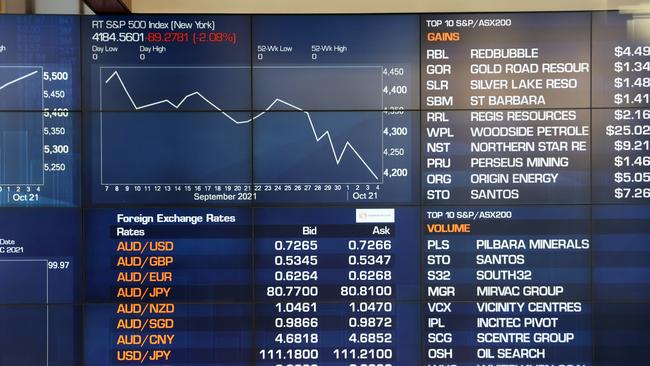
Oil prices dropped by almost 7 per cent overnight, leading to Australia’s major producers Woodside sinking 9.1 per cent to $20.43 and Santos dropping 9.4 per cent to $5.95.
Businesses that would face the brunt of the tariffs were hammered on Friday.
Buy now pay later company ZIP slumped 13.76 per cent to $1.28 on the back of fears of a slowing US economy.
Meanwhile automotive companies which will face a 25 per cent tariff by Mr Trump were absolutely smashed. Amotiv was whacked, dropping 16.7 per cent to $7.32, while CAR Group lost 5.5 per cent to $30.94 and ARB Corporation shed 7.1 per cent to $28.49.
Consumer facing business Breville shares were in free fall, down 12 per cent as most of its manufacturing is out of China which now has a 34 per cent tariff on imports to the US.
Treasury Wine Estate fell 3.58 per cent to $8.63, despite telling the market the impact of tariffs would be minimal, as investors feared the impacts of selling wine to the United States.
All four big banks closed lower. Australia’s largest bank Commonwealth dropped 1.5 per cent to $154 flat, NAB lost 1.4 per cent to $3.70, Westpac was off 2.4 per cent to $30.99 and ANZ closed down 3.7 per cent to $28.18 after UBS cut its price target for the lending major.
Consumer staples were the only bright spot on the market, as investors flocked to the defensive assets.
Shares in Woolworths soared 3.39 per cent to $31.13 while Coles jumped 4.14 per cent to $21.13.
Originally published as ASX 200 hammered during Friday’s trading

